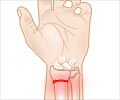Herbs are the latest medicine kings in the treatment of many complex problems. According to a new study that finds a place in the June issue of Angiology if pine bark extract Pycnogenol® (pic-noj-en-all) is taken it helps in pain and cramp of muscles.
The reason and scientific basis behind it is the phenomenon that this extract improves blood flow to the muscles which speeds recovery after physical exercise."With the millions of athletes worldwide, this truly is a profound breakthrough and extremely significant for all individuals interested in muscle cramp and pain relief with a natural approach. These findings indicate that Pycnogenol can play an important role in sports by improving blood flow to the muscles and hastening post-exercise recovery," said Dr. Peter Rohdewald, a lead researcher of the study.
Researchers at L'Aquila University in Italy and at the University of Würzburg in Germany studied the effects of Pycnogenol on venous disorders and cramping in two separate studies.
The first study consisted of 66 participants who had experienced normal cramping at some point, had venous insufficiency, or were athletes who suffer from exercise-induced cramping. The first two weeks of the study was an observation period and participants did not supplement with Pycnogenol. Symptoms related to venous disorders, and the number of cramping episodes each participant experienced over the two observation weeks was recorded.
Next, all the participants were given 200 mg of Pycnogenol once a day for four weeks. After the treatment phase, participants' symptoms and cramping episodes were recorded for one week without any Pycnogenol supplementation.
The researchers found a significant decrease in the number of cramps the participants experienced while supplementing with Pycnogenol. Participants who had experienced normal cramping had a 25 percent reduction in the number of cramps experienced while taking Pycnogenol.
Advertisement
The second study involved 47 participants with diabetic microangiopathy (a disorder of the smallest veins commonly associated with diabetes), or intermittent claudication (a blood vessel disease that causes the legs to easily cramp).This study also used a two-week pre-trial observation period followed by a week of supplementing with Pycnogenol (200 mg per day for one week), followed by a week of observation without Pycnogenol supplementation.
Advertisement
Cramps are a common problem for people of all ages, ranging to the extreme fit and healthy to people who suffer from health problems. Previously, magnesium was hailed as the natural approach for relieving muscle cramps, however studies continue to show magnesium to be inefficient for reducing muscle cramps.
"Pycnogenol improves the blood supply to muscle tissue creating a relief effect on muscle cramping and pain. Poor circulation in the muscle is known to cause cramps and Pycnogenol improved the cramping in patients due to a stimulation of blood flow to their muscle tissue. Nitric oxide (NO) a blood gas, is well known to enhance blood flow and Pycnogenol may be influencing the activity of NO," said Rohdewald. "The insufficient production of NO is the common denominator responsible for impaired blood flow in vascular disease."
Strenuous exercise is known to involve muscle damage which may be followed by symptoms of inflammation. In separate studies published this year and in 2004 and 2005, Pycnogenol demonstrated its anti-inflammatory effects in clinical trials for asthma, dysmenorrhea and osteoarthritis.
Source: EurekAlert










